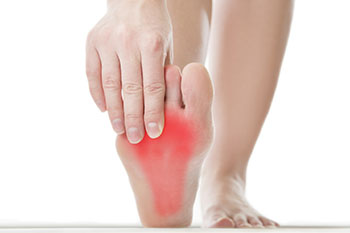Plantar Fasciitis
Hours of Operation
- Monday: 8:30AM – 5:00PM
- Tuesday: 8:30AM – 5:00PM
- Wednesday: 8:30AM – 5:00PM
- Thursday: 8:30AM – 5:00PM
- Friday: 8:30AM – 5:00PM
- Saturday: By Appointment Only
Contact Info
-
Phone: (832) 415-1790
 The plantar fascia is a connective tissue in the heel that stretches the bottom length of your foot. Plantar fasciitis is the inflammation of this connective band, causing heel pain and overall discomfort while walking or standing. Although the condition is completely treatable, traditional methods can take up to a year to start being effective.
The plantar fascia is a connective tissue in the heel that stretches the bottom length of your foot. Plantar fasciitis is the inflammation of this connective band, causing heel pain and overall discomfort while walking or standing. Although the condition is completely treatable, traditional methods can take up to a year to start being effective.
Plantar fasciitis is caused by a number of everyday activities, so understanding and assessing the condition is paramount to managing and treating it. One of the most common causes of plantar fasciitis is excessive running, especially with improper fitting or non-supportive shoes. By over exercising and running, the plantar fascia gets overworked and overstretched, eventually causing tears in the tissue and inflammation. Along with improper fitting shoes, over-pronation is a common cause of plantar fasciitis. By not having the right shoes to correct this issue, once again the plantar fascia becomes overstretched and starts to tear, causing the inflammation.
Despite the common causes of plantar fasciitis, there are many different treatment options. For less severe cases, conservative home remedies such as taking anti-inflammatory drugs to alleviate pain, applying ice packs to the bottom of your foot and heel, slowly stretching and exercising your feet to re-strengthen the tissue, and using orthotic devices to overcome issues such as over-pronation are all ways to help manage your plantar fasciitis.
For more severe cases however, there are still things that can be done. Shockwave therapy has become a common solution for plantar fasciitis because it effectively breaks up the tissue on the bottom of your foot via sound waves which facilitates healing and regeneration, allowing you to overcome the chronic pain caused by plantar fasciitis. Even if this doesn’t work, surgery is always a final option. Surgery on the tissue itself can be done to permanently correct the issue and stop the inflammation and pain in your heels.
No matter what the case may be however, seeking the immediate care of your podiatrist is the first and best step to recovery. Even the slightest amount of heel pain could be the first stages of plantar fasciitis and the initial onset of tearing and overstretching of that band of tissue. On top of this, because the tearing of this tissue can be compounded if it remains ignored, it could become a more severe case than it needs to be. The solution to this is early detection and early treatment, so be sure to talk to your podiatrist about the possibilities of plantar fasciitis if you’re experiencing heel pain.

